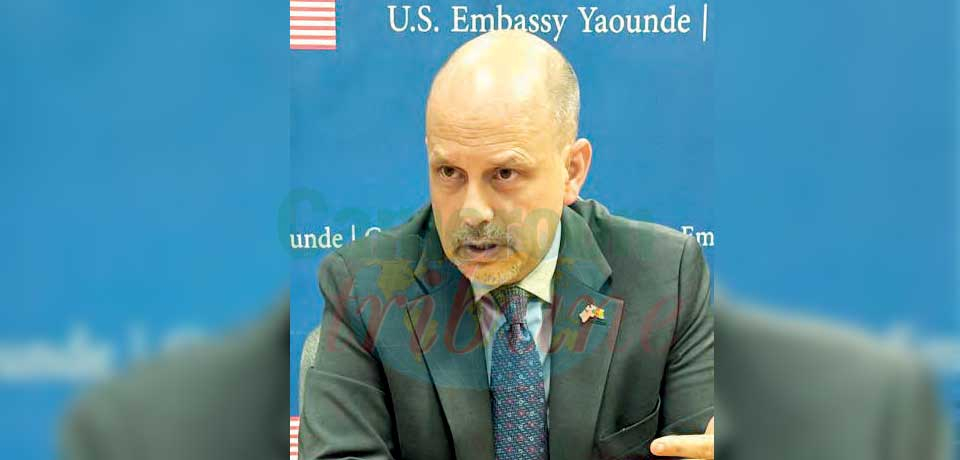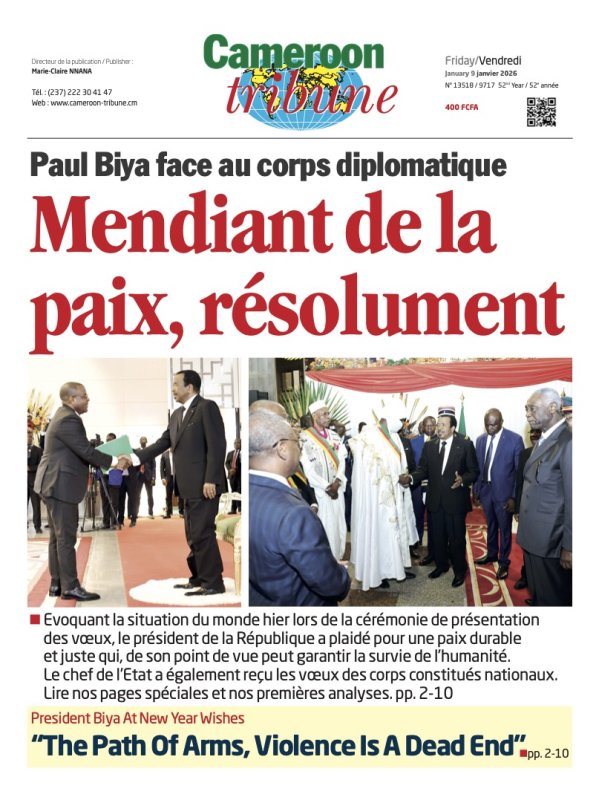« Inaction By International Donors To Date Raises Many Questions»
- Par Eldickson Agbortogo
- 30 Aug 2024 12:06
- 0 Likes

Dr Tarh Humphrey Ntantang, Political Economist, Researcher and Founder of Ntantang Center for Research and Consultation, Yaounde.
A few weeks ago, the World Food Programme while presenting her report to the UN Security Council, issued a warning on the imminent devastating effects of famine in Sudan. How serious is the situation on the field?
After a year of conflict that has seen the killing of over 15,000 people, Sudan is facing one of the world’s largest humanitarian crises. It has entered a downward spiral of extreme conflict-induced hunger. More than half the population 25 million people currently need humanitarian aid and 3.7 million children are today in need of urgent nutrition support. The scale of the crisis in Sudan is shocking as the fighting continues. In addition to the hunger crisis, more than 8.5 million people have been forced to flee their homes as a result of conflict, including 1.8 million who have crossed into neighbouring countries. Presently, over 70% of health facilities in Sudan’s conflict zones are not functioning. Efforts to reach these civilians with food aid are challenging due to the continuous violence and interference from the warring parties. According to recent figures released by the US based international organization, Nutrition Cluster, nearly 230,000 children, pregnant women, and new mothers could die in the coming months due to hunger. In Darfur, civil society and local leaders have repeatedly sound the alarm about hunger among displaced people living in camps in areas under RSF control. Some of them say, their communities have resorted to eating ants, tree bark, and animal feed in order to survive. In January this year, Doctors Without Borders raised an alarm on malnutrition in Zamzam camp in North Darfur, warning that “an estimated one child is dying every two hours.” In Khartoum, a communication blackout has forced hundreds of communal kitchens run by Sudanese emergency response rooms, a grassroots mutual aid network, to pause operations, leaving many people without food. The situation keeps complicating as the two warring factions, Sudan’s Armed Forces (SAF) and Rapid Support Forces (RSF) are unwilling to sit on the negotiation table. 340 days of fighting is enough for the two parties to realize that none can win the war out rightly.
What in your opinion should be done to reverse the current situation?
The international community cannot stand by and allow this crisis to continue to unfold. The situation in the Darfur and Kordofan States are particularly worrying. Inaction by international donors to date raises many questions. Just 5% of the $2.6 billion humanitarian funding needed to meet Sudan’s needs this year has been provided as conditions continue to deteriorate. Donors must urgently fund a massive mobilization of supplies and resources to limit the impact of the humanitarian catastrophe. The international pledging conference for Sudan which is a real opportunity for donors to step up and close the funding gap should be held frequently. United Nation member states, especially those on the Security Council and those with the greatest influence in the region, must use their power to press for an immediate cease-fire, a peaceful and negotiated political solution to the conflict. UN member states must redouble efforts to ensure parties to the conflict facilitate safe access for humanitarian actors and for communities to receive humanitarian aid. Above all, the protagonists in the conflict, SAF and RSF must clearly commit to a cease-fire as a critical first step in solving the crisis. The application of “Uniting for Peace Resolution”, like was the case during the Korean War from 1950 to 1953 is very important. It entails, the deployment of UN forces in Sudan to end the fighting and set a road map for the peace process.
You talk of an immediate cease-fire. What do you think is the major hindrance to the different efforts to provide aid to the needy?
Since the conflict broke out between Sudan’s Armed Forces (SAF) and the paramilitary Rapid Support Forces (RSF) in April 2023, both warring parties have restricted aid delivery, access, and distribution. Ninety percent of people in Sudan facing emergency levels of hunger are in areas that are largely inaccessible to the World Food Programme ...
Cet article complet est réservé aux abonnés
Déjà abonné ? Identifiez-vous >
Accédez en illimité à Cameroon Tribune Digital à partir de 26250 FCFA
Je M'abonne1 minute suffit pour vous abonner à Cameroon Tribune Digital !
- Votre numéro spécial cameroon-tribune en version numérique
- Des encarts
- Des appels d'offres exclusives
- D'avant-première (accès 24h avant la publication)
- Des éditions consultables sur tous supports (smartphone, tablettes, PC)














Commentaires